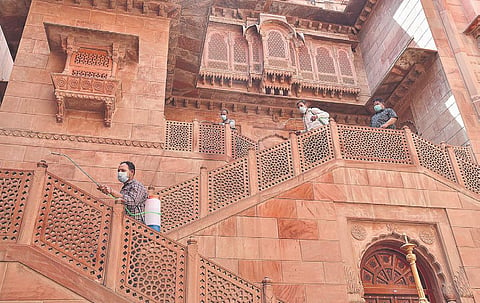

NEW DELHI: Worried at the soaring cases, the Centre, for the first time, is set to carry out sentinel testing to check if community transmission of the virus has already taken place. Sources in the Indian Council for Medical Research (ICMR) said sentinel testing will be carried out through the Integrated Disease Surveillance Programme’s influenza surveillance, which will randomly test swabs from patients hospitalised across India with severe acute respiratory syndrome and influenza. For the initiative, about 20 labs across India are set to be activated.
For coronavirus, the government so far had only been carrying out ‘need-based testing’ which means testing suspected cases with a travel history from countries with outbreak and their contacts who showed symptoms of infection. The latest initiative is in line with the approach adopted by many countries battling the outbreak.
“We are in the process of finalising the protocol to see whether there is any community transmission of the virus even as the containment efforts are on,” said a senior official with the National Institute of Epidemiology under ICMR spearheading the project. Community transmission is defined as transmission of pathogen when there’s no direct link between an infected person and source of infection. The samples collected retrospectively from early February will also be subjected to check, the official said, adding that a similar exercise a few years ago had helped identify a Zika virus cluster in Gujarat and prevent its extensive spread.
Some virologists, however, say the top priority should be developing simpler diagnostic techniques, working on developing vaccines and anti-viral medications. “It’s a rapidly changing scenario everyday but I do not see the seriousness at the highest level that’s required. Sentinel surveillance is fine but what next if positive cases are found in the population?” asked Dr T Jacob John, senior virologist with CMC, Vellore.
‘Vaccine to take two years’
Dr R R Gangakhedkar, chief epidemiologist at the ICMR, said although efforts were on to develop vaccine against COVID-19 indegenously, it could take up to 18-24 months even if the approvals for clinical trials for efficacy and safety are expedited.